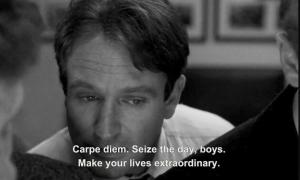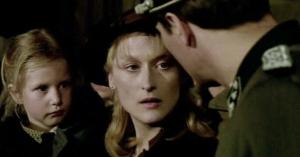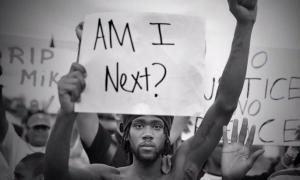Song René de Residente: lyrics, analysis and meaning
René is an autobiographical musical theme composed and performed by Residente, the stage name of René Pérez Joglar, who was a founding member of the Calle 13 group, of which he was a member until 2014.
The topic generated a real commotion when it was released on social media, and it quickly positioned itself as a trending topic. What sparked the shock of the audience? What meaning can we attribute to the song René and to the phenomenon of its impact?
Lyrics

René, come, let's go to study
Yes I'm going to ask you a question
You answer it to me '
With what part of the body
Did the Taino Indians play ball?
René, answer me
Yes it's easy
Take care of me, take care of me, look at me
With what part of the body?
Did the Taino Indians play ball?
I know
I sing it to you and then 'so you learn it
Head, knee, thighs and hips
Head, knee, thighs and hips
Head, knee, thighs and hips
Head, knee, thighs and...Since I was little I wanted to be a baseball player, I did not get there
So I learned how to hit hits over a track
I went back to drinking alcohol in my office
I write well sober, but I write better drunk
When I fall into depression
I tell my problems to the window of the plane
Stress has me sick
I haven't slept in ten years
The IRS is still investigating me, I'm getting divorced
But it doesn't matter, I keep rhyming
I make mistakes, but I do what I can
I learned to land without wheels
And although they recognize me on the street
My friends don't even know me anymore
I'm sad and i laugh
The concert is full, but I'm empty
In the music industry, everything is a lie
My son has to eat so I keep on touring
I only have what I have
I don't know where I'm going, but I know where I come fromI grew up with Christopher, my friend
We threw stones together, we broke a couple of windows'
We ran down the street shirtless
In the parcels of Trujillo, downhill, by bicycle
The bike on top of the mud
With a plastic cup on the rubber
So that it sounds like a car
We recharged battery with Indian malt
And garlic bread, nobody stopped us
We were inseparable, until one day
They killed him between four policemen
My joy is still broken
The lights went out in the Parque de PelotasThere is hardly anyone left here
Sometimes I don't want to be here anymore
I feel alone here
In the middle of the party
I want to be where nobody bothers me
Burn my notebook, drop my bags
I want to call 7-5-5-0-8-2-2
To see who answersThe fights with my stepfather, when he lost control
I solved them with him, watching a baseball game
She invited me to fight a couple of times
I ran away from home a couple of times
But there was never a lack of food
She defended us with music, playing at weddings
Sometimes baked, sometimes canned and microwaved
We shared everything, the table was roundLower-middle class, we never owned
The bank loan stole our dreams
The empty savings account
But mommy dancing flamenco made our day
She stopped acting to take care of the four of us
And we become his play
She put on our boots
And her life was one of our achievements and our defeats
My stepfather went with other fish
We moved from Calle 13I went to seek luck in a sea of straw
And I packed my whole life in a box
I was awarded a scholarship at the art university
Half of my friends were killed
I started rapping again
I started to believe again
I came back, I put out a record
I ate the world in one biteIn Puerto Rico they laid off employees
I insulted the governor and he got televised
They censored four years from my calendar
Grandma died, she didn't see me play at the stadium
I said everything I felt
They want me more abroad than in my own country
But even if my songs are sung by a German
I want to be buried in old San Juan
Sadness may hide it
But I'm made of rice with pigeon peas
And it hurts me
It does not matter that the rum of the dawn comforts me
And from inside the pulp, if I screwed up
I dedicate four floors of apologies to my countryThere is hardly anyone left here
Sometimes I don't want to be here anymore
I feel alone here
In the middle of the party
I want to be where nobody bothers me
Burn my notebook, drop my bags
I want to call 7-5-5-0-8-2-2
To see who answers
And if they answer me
I want to tell them that I want to go back
That I want to leave this hotel
And disappear
And if they answer me
I want to tell them that I want to lower the curtain
That sometimes my pressure goes up
That I am afraid that the plane will fall
That I don't care about tours, records, the Grammys. '
And that on 11th StreetI want to see Halley's Comet again with mommy
I want to go back to when
My windows were from the Sun
And the heat woke me up
When they called me to play
To when I rapped for free
I want to take the ball cards out of the container
Steal second base from me again
In summer, there is Christmas
Cleaning the house with my brothers', listening to Rubén Blades
I want to go back, go to the movies in the week
And get to art school 'in the' morning '
I want to stay there, I don't want to leave there
I want to go back to when
They wouldn't let me in because I dressed badly
I want to feel again
To when I didn't have to pretend
I want to be me againHead, knee, thighs and hips
Head, knee, thighs and hips
Head, knee, thighs and hips
Head, knee, thighs and hips
Song analysis

The song René it is a confession, an act of liberation and purification. It is, perhaps, a new breath for the personal life of its author. But René It is also a controversial issue, as is the exposition of all truth, always relative to the subject that enunciates it. A man who embraces success cries for the cameras. Why?
Relativization of success
Due to its well-known professional achievements, the song constitutes a relativization of the notion of success and the confirmation of the universal and inexorable drama of loneliness. Success is the ideology of the welfare state. Both the struggle for success and its conquest, throw the individual into an individualistic and lonely career, that explains the mention of the falsehood of the music industry and, indirectly, of the culture of the image and the consumption.
Context and individual history
There are many elements present as it is an autobiographical story, historically situated. René's history and personal life is interwoven with the political and economic order of Puerto Rico; with instituted violence; with dominant ideologies and universal concerns for bread, the future, lost childhood, memory, nostalgia, love, loneliness, illness, fatigue and identity or, better, the sense of membership.

The return to me: family, childhood, music
The subject needs to track down his story and go back to his origins. He needs to regain his identity, the one that goes through retrieving his name. Hence that René be the title of the song. Hence also that the phrase "I want to be me again" is the end of the recitation of Resident.
The song begins and ends with the mother who teaches him singing… The entire maternal scene referred to makes up a metaphor for her cultural roots and her musical initiation. In her childhood, her mother builds her identity and her vocation for music, the latter also accentuated by the influence of her stepfather.
Resident then reviews his childhood dreams, his most beloved affections, the weight of loneliness, the feeling of foreigners in his own life. earth (uprooting, loss of sense of belonging), music, alcohol crosses, depression and fear of death (or its wish).

In the midst of an empty success, the memory of everyday life and the will to relive it become a guiding light. The song is, in a sense, a tribute to the family: the mother who loves and sacrifices herself, the stepfather who provides, work, the table where bread is shared, the table where there is dialogue. The memory of childhood is the homeland of the wandering soul. You do not return to childhood, but to family and human ties you do.
Just as the text tells us the details of his life, the video shows us the itinerary of his intimate memories. 13th Street, the playing field, the bottle of rum, his bicycle, Christopher's altar, the musical instruments, the food, the round table without hierarchies, his videos and cameras (his studies), his friends, the first album, the shoes and second base, his son, the Rubén Blandes LPs and the record player, his Photographs.
The recovery of the vital sense
The human condition is fragile, and that is why the public identifies with René. Nothing frees us from fear, crying or fatigue. Nothing except the human relationships that make us people, that remind us of our dignity... those that are woven into the intimate history constructed on a daily basis.
At the end of this identity journey, the future awaits Residente, his son Milo, a symbol of that personalized relationship and, therefore, the reason that gives meaning to the work. For this reason, when the video shows the meeting of father and son, René abandons the bottle driven by the unfathomable mystery of his love for his son. Love is the reason to live.
How to interpret the success of René?
We have a hypothesis to explain the sudden success of the song René. In recent years the record industry has concentrated its efforts on a single record: entertainment. Sadness is frowned upon in the radio industry, which, moreover, does not even tolerate a happy song for more than three minutes on the air. But the people's problems are there, the anxieties and fears, like sleeping lions in front of a herd of antelope. We live the dictatorship of evasion.
If Calle 13's work has represented an alternative to look at the concrete world and its contradictions, the theme René it represents a high point on the journey to take charge of ourselves and the sadness that pervades the frenetic and enslaving lifestyle of our generation. After decades of happy songs that turn their backs on the harshness of the news, someone dared to recognize the mud from which it was made, the same as all human beings: a mass of survival instinct, fear and love.
Beyond the contradictions that some may attribute to the author of the subject, the symbolic impact that he has exerted by opening the field to the representation of an emotional universe silenced in the media: sadness and loneliness, only surmountable when the subject decides to open up and build bridges towards their equals.
Keys and fun facts
- Resident motivation. The artist shared the motivation for this issue at the launch on social media: One night I felt very bad, I was in Mexico, the stadium waiting for me, and I did not want to leave the hotel. I called mommy because she wanted to throw me off the balcony and I didn't know why. That night a friend came and stayed with me. The next day I started writing this topic.
- The location of the video. The video was shot in Trujillo, Puerto Rico, where the aforementioned 13th street was located and where Residente spent his childhood and youth.
- "Head, knees, thighs and hips": It refers to batu, a ball game played by the Taino Indians. The Tainos were the ancient inhabitants of the Greater Antilles, the Lesser Antilles, and the Bahamas. According to the song, René's mother sang the lessons to help him learn, since he suffered from attention deficit.
- The number 7550822. This was the phone number of his old house in Trujillo. It had already been mentioned in a Resident tweet dated 2011: Missing my little island, my family, the beach, do (SIC) a baseball play, eat mincemeat, the sun, the coconut limbel, the 7550822, my friends.
- Who is the kid in the video René? The child that appears at the end of the video is his son, Milo, the result of his relationship with his ex-wife Soledad Fandiño.
- Milo's first public exhibition. The video records the first public exposure of the artist's son. Resident refused to expose it before he could consent to it.
- Ruben Blades. The Rubén Blades records that marked Residente, and that appear in the video, are Looking for america Y Life teacher. They used to be the records he listened to the most when he had to do housework. The Panamanian singer was a determining influence on the identity and musical conception of Residente.
- IRS. The IRS is the tax office of the United States of America.
- Who censored Calle 13? The governor who censored Calle 13 for four years in 2009 was Luis Fortuño, because Residente publicly insulted him.
- René's scholarship. The scholarship to which the singer refers was obtained to study a graduate degree in Fine Arts at the Savannah College of Art and Design, in Georgia.
- Loafers. Pigeon peas are known in other regions of Latin America as peas, stick beans or quinchoncho.
Resident Bio
René Pérez Joglar, known as Residente, was born in San Juan, Puerto Rico, on February 23, 1978. He is a singer, songwriter, and music and audiovisual producer.
He started his career as the founder and vocalist of the group Calle 13 with his stepbrother Eduardo Cabra, nicknamed Visitor, and his sister Ileana Mercedes Cabra Joglar. In 2015 he started his solo career.
From the musical point of view, he has stood out within the alternative music category, thanks to his particular way of combining rap with different Latin American musical genres, achieving a distinctive seal in the industry, already as a member of Calle 13, and as soloist.
He is widely known for his belligerent character, which is expressed in the political and social content of his themes. This has caused him problems repeatedly. He is also known as an advocate for indigenous rights and a promoter of public education. He has collaborated with Amnesty International and with UNICEF.
During their participation in Calle 13, the group received 27 Grammy Awards. As a soloist, he has managed to conquer 5 statuettes of the coveted award.



